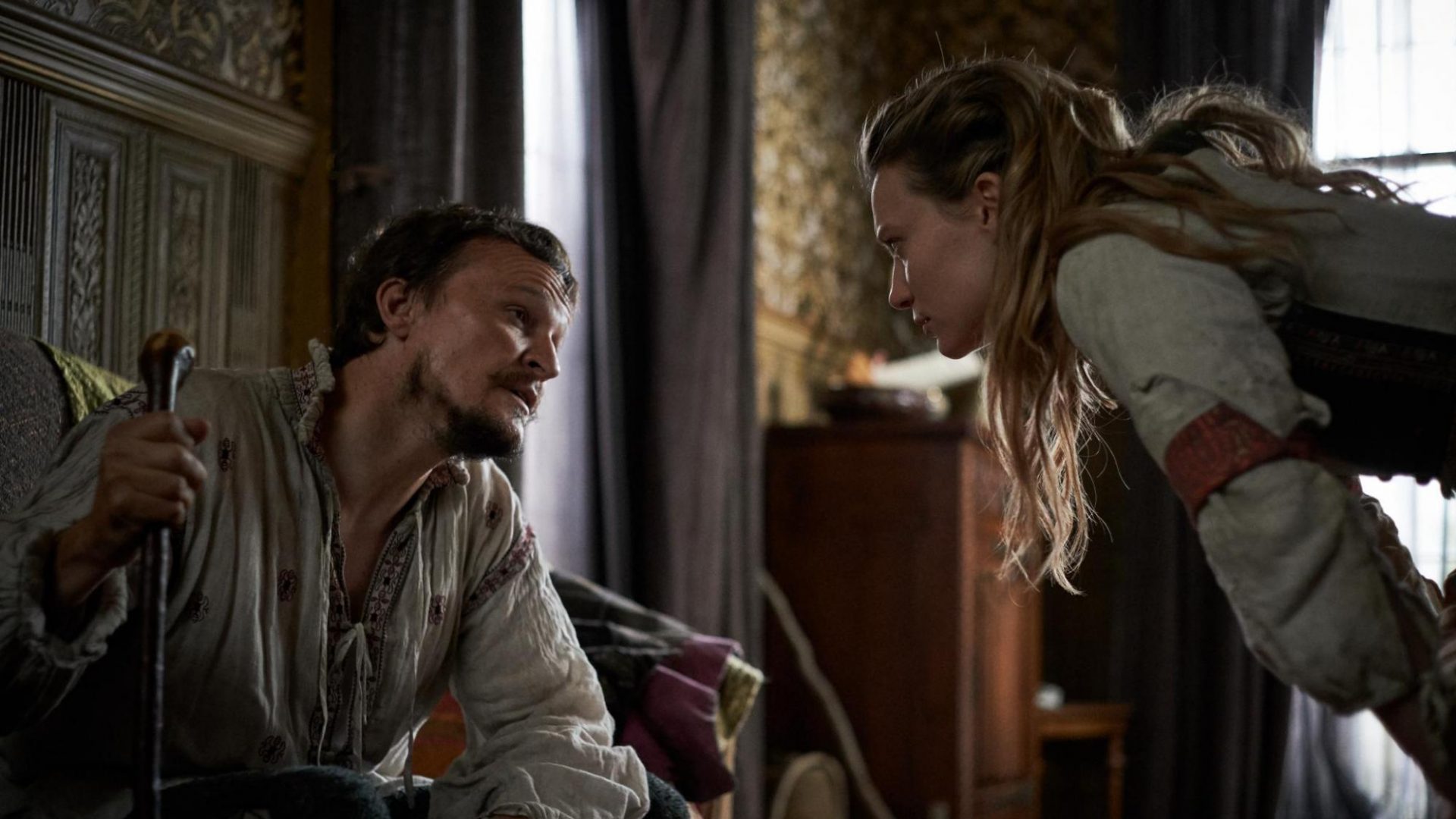Mirrah Foulkes / Australia, USA / 2019 / 105 minutes
Actor-turned-director Mirrah Foulkes shows us the way to do it with this daring black comedy which turns more than just the traditional puppet show title on its head. With violence and discrimination against women firmly to the fore, Foulkes’ directorial debut is equal parts bawdy slapstick, social commentary satire, revenge thriller and macabre origin story.
We open on Seaside, an isolated and isolationist town where grog and mob mentality outrank reason, logic and the law. Anyone who ventures to stray from the script set by the baying, bigoted majority is stoned, hanged or burned as a witch, or else chased out of a town as an exiled heretic. It’s here where Judy (Mia Wasikowska) and her husband Punch (Damon Herriman) seek to make their fortune on the stage with their “smashy, punchy” puppet show.
But although Punch might proclaim himself the “greatest puppeteer of his generation”, it’s clear that most of the ability resides with his modest but accomplished wife. Nonetheless, the two muddle along amiably enough, with the only major clouds on the horizon the absence of talent scouts in their crowd, a ruff-clad pooch with a penchant for stolen sausages and the beginnings of a hefty hangover for the villainous hero of the piece.
For that’s what Punch seems to be at the outset: nothing more than a lovable rogue. It’s to Foulkes’ credit that the pacing is set up for slapstick and silliness – with perhaps the merest suggestion of something more sinister lurking beneath – so when the plot takes an abrupt nosedive into aggression and ultra-violence around a third of the way in, we’re taken somewhat unawares. Any lingering doubts over Punch’s integrity are soon dispatched, after which it simply becomes a waiting game for the rogue to come upon his comeuppance.
The metaphysical layering of the film is one of its delights. The playfulness of some of the dialogue and the director’s attempts to maintain a lighter tone despite the awful subject matter may jar a little, but it’s a perfect reflection of the institution which gives the film its name. Punch’s ruthless roughhousing of all who cross his path – be they the long arm of the law, the devil, a ghost, the Grim Reaper or his darling wife – have been enchanting youngsters for generations.
Foulkes’ juxtaposition of the lighter and darker elements of her film rightly call into question that paradox in a movie that is decidedly not for children. The closing credits, featuring real footage of rugrats shocked, scared and, above all, delighted by the sadistic spectacle unfolding in front of them, sum up all that has gone before them succinctly. Alongside this macabre fascination with man’s inhumanity to his fellow man, Foulkes also clearly homes in on an even more pronounced ruthlessness towards the female of the species. Both points are made bluntly but effectively.
Having said all that, the film is certainly not without its missteps. Aside from the eponymous pairing, the rest of the townspeople are painted in the broadest of brushstrokes, allowing for little in the way of character arcs or developments. Indeed, Judy is the only one who shows anything of the sort, while the seriously questionable accent work undertaken by more than one cast member doesn’t help matters. But despite these drawbacks, and an uneven tone which threatens to undermine the very point it’s attempting to make, Judy and Punch is an adventurous and enjoyable first feature for a promising new talent pulling the strings.
